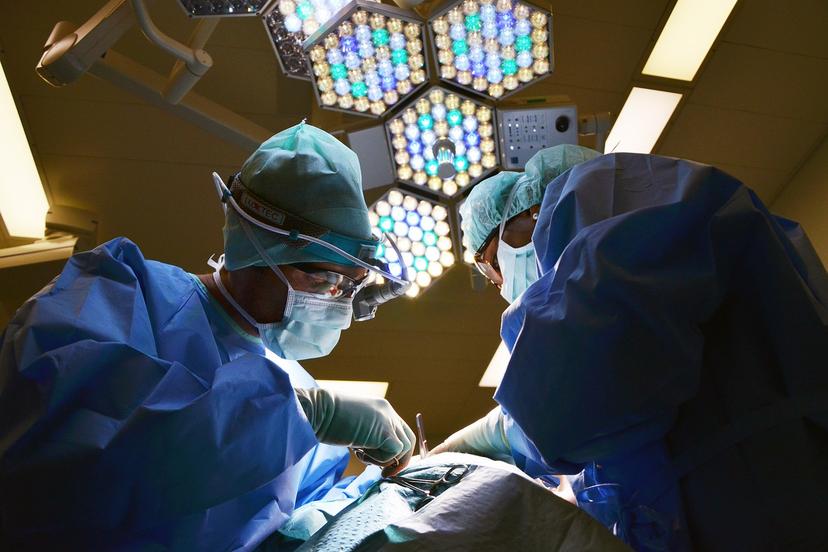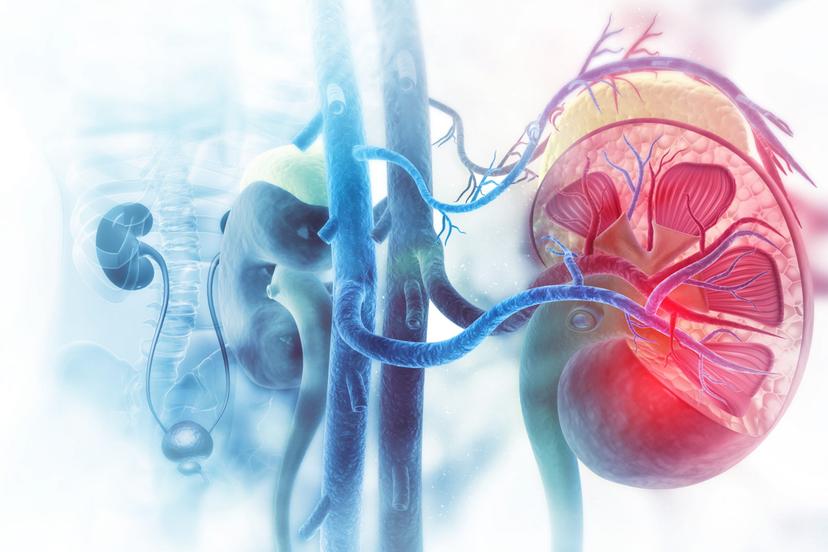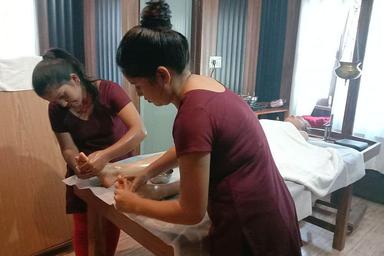
Understanding Cancer Treatment Options: UK vs. Russia
25 Jul, 2024
 Healthtrip Team
Healthtrip TeamCancer treatment involves various strategies tailored to each patient’s unique needs. In comparing cancer treatment options between the UK and Russia, we can examine their respective approaches to early detection, surgery, chemotherapy, radiotherapy, targeted and immunotherapy, and palliative care.
Most popular procedures in India
A. Early Detection and Screening
1. UK:
i. Breast Cancer Screening: The UK’s National Breast Screening Programme is a cornerstone of cancer prevention. It offers mammograms every three years to women aged 50 to 71. This systematic approach has significantly improved early detection rates, leading to better outcomes and higher survival rates. Women receive invitations for screening, and the program is designed to ensure that all eligible women have access to early diagnostic services.
Wellness Treatments
Give yourself the time to relax
Lowest Prices Guaranteed!

Lowest Prices Guaranteed!
ii. Cervical Cancer Screening: The Cervical Screening Programme provides Pap smears and, more recently, HPV testing every three to five years for women aged 25 to 64. This proactive approach helps identify precancerous changes in the cervix early, enabling timely intervention and reducing cervical cancer incidence. The program is supported by public health campaigns to raise awareness and encourage participation.
iii. Bowel Cancer Screening: The Bowel Cancer Screening Programme targets individuals aged 60 to 74, offering screening every two years. The program utilizes stool tests and, when necessary, colonoscopy to detect early signs of bowel cancer. Early detection through these screenings has been linked to improved survival rates and better management of bowel cancer.
2. Russia:
i. Breast Cancer Screening: Screening programs for breast cancer are available in major cities such as Moscow and St. Petersburg. However, rural areas may have limited access. Mammograms are used for early detection, but the frequency and organization of screening programs can vary. The disparity in access between urban and rural regions affects early detection rates.
ii. Cervical Cancer Screening: Cervical cancer screening services are offered, with Pap smears and HPV testing available in larger cities. The extent of screening coverage and frequency can vary, with some regions having more comprehensive services than others. Efforts are underway to expand and standardize these services across the country.
iii. Bowel Cancer Screening: Bowel cancer screening is gradually expanding, particularly in urban areas. The approach includes stool tests and colonoscopy, but the availability and frequency of screening programs may differ from those in the UK. Efforts to improve and standardize screening services are ongoing.
B. Surgery
1. UK:
i. Minimally Invasive Surgery: The UK employs minimally invasive surgical techniques, including laparoscopic surgery, which involves small incisions and the use of a camera to guide the surgeon. This approach reduces postoperative pain, shortens recovery times, and minimizes scarring. In addition, robotic-assisted surgery, using systems like the da Vinci Surgical System, allows for precise and controlled procedures, particularly in complex cases.
ii. Robotic Surgery: The integration of robotic technology into surgical practices in the UK has advanced significantly. Robotic systems provide enhanced precision, flexibility, and control during surgery, which is particularly beneficial for delicate and complex procedures. Major hospitals such as The Royal Marsden and The Christie are equipped with robotic systems, offering state-of-the-art surgical options.
2. Russia:
i. Minimally Invasive Surgery: In Russia, laparoscopic and endoscopic techniques are employed in modern surgical centres. These techniques offer benefits similar to those in the UK, including reduced recovery times and less postoperative pain. Availability is more common in advanced hospitals and private clinics, with rural areas having limited access.
ii. Robotic Surgery: Robotic-assisted surgery is becoming more prevalent in Russia, particularly in leading hospitals and private institutions. While the adoption of this technology is growing, it may not be as widespread as in the UK. Major facilities such as the Blokhin National Medical Research Center are known for their advanced surgical capabilities.
C. Chemotherapy and Radiotherapy
1. UK:
i. Chemotherapy: The UK provides access to a wide range of chemotherapy drugs, including the latest innovations. The National Institute for Health and Care Excellence (NICE) reviews and recommends chemotherapy regimens based on the most recent evidence and clinical trials. This ensures that patients receive effective and up-to-date treatments tailored to their specific cancer type and stage.
ii. Radiotherapy: Advanced radiotherapy techniques are widely used in the UK. Intensity-modulated radiotherapy (IMRT) and stereotactic radiosurgery (SRS) allow for the precise targeting of tumors while minimizing damage to surrounding healthy tissue. Facilities such as The Christie and The Royal Marsden are known for their expertise in delivering high-precision radiotherapy.
2. Russia:
i. Chemotherapy: Chemotherapy is a common treatment in Russia, with a range of drugs available depending on the facility. Major hospitals and private clinics often provide access to the latest chemotherapy regimens. However, the availability of advanced drugs and treatment protocols may vary between state-funded and private institutions.
ii. Radiotherapy: High-precision radiotherapy techniques, including stereotactic radiotherapy, are available in leading centres in Russia. The adoption of advanced technologies is more prevalent in urban areas and private facilities. Access to these treatments may be limited in smaller or rural hospitals.
D. Targeted and Immunotherapy
Targeted therapy and immunotherapy represent some of the most advanced and promising approaches in cancer treatment. These therapies focus on specific aspects of cancer cells and the immune system to improve efficacy and reduce side effects compared to traditional treatments. Here’s a detailed comparison of targeted and immunotherapy options between the UK and Russia.
1. Targeted Therapy
UK:
A. Precision Medicine Approach: The UK employs a precision medicine approach to targeted therapy, utilizing genetic and molecular profiling of tumors to select the most appropriate treatment. This strategy helps in targeting specific mutations or abnormalities present in cancer cells. For example, drugs such as trastuzumab (Herceptin) target HER2-positive breast cancer, while imatinib (Gleevec) targets chronic myeloid leukemia (CML) with the BCR-ABL mutation.
B. NICE Guidelines: The National Institute for Health and Care Excellence (NICE) plays a crucial role in evaluating and recommending targeted therapies. NICE ensures that treatments are based on the latest clinical evidence and are accessible to patients through the NHS. This includes approval of new targeted drugs and integration into treatment protocols.
C. Access to Cutting-Edge Treatments: The UK has access to a wide range of targeted therapies, including newer agents that have emerged from ongoing research and clinical trials. Leading cancer centers such as The Royal Marsden and The Christie are at the forefront of utilizing these therapies, often participating in research and trials to offer the latest options to their patients.
Russia:
A. Emerging Targeted Therapies: Targeted therapies are becoming more prevalent in Russia, especially in major urban centers. While the availability of these therapies is growing, there can be variability in access depending on the region and type of facility. Drugs such as trastuzumab and imatinib are available in many advanced centers, though newer therapies might be less accessible.
B. Regulatory and Approval Process: The approval and integration of targeted therapies in Russia are managed by the Ministry of Health. The process involves evaluating the efficacy and safety of new treatments. While the regulatory framework is improving, the introduction of new targeted therapies may be slower compared to the UK.
C. Access and Infrastructure: Major hospitals and private clinics in Russia are increasingly adopting targeted therapies, particularly in metropolitan areas. However, access may be limited in rural regions. Institutions like the Blokhin National Medical Research Center are known for their advanced oncology services and access to targeted therapies.
2. Immunotherapy
UK:
A. Checkpoint Inhibitors: The UK is a leader in the use of checkpoint inhibitors, such as pembrolizumab (Keytruda) and nivolumab (Opdivo). These drugs work by blocking proteins that prevent the immune system from attacking cancer cells. They are used in various cancers, including melanoma, lung cancer, and bladder cancer. NICE guidelines ensure these treatments are available based on evidence and clinical effectiveness.
B. CAR T-Cell Therapy: The UK has made significant advancements in CAR T-cell therapy, a form of immunotherapy where a patient’s T-cells are modified to target cancer cells. Treatments like tisagenlecleucel (Kymriah) are used for certain types of leukemia and lymphoma. Major cancer centres and specialized units offer CAR T-cell therapy as part of their treatment options.
C. Clinical Trials and Research: The UK is actively involved in immunotherapy research and clinical trials, often providing access to experimental therapies before they are widely available. Institutions such as The Royal Marsden and The Christie are prominent in this field, contributing to ongoing advancements in immunotherapy.
Russia:
A. Checkpoint Inhibitors: Immunotherapy, including checkpoint inhibitors like pembrolizumab and nivolumab, is becoming more accessible in Russia. These treatments are used for various cancers and are available in leading hospitals and private clinics. However, the availability and access can vary, with newer treatments being less common outside major cities.
B. Emerging CAR T-Cell Therapy: CAR T-cell therapy is gradually being introduced in Russia, with some major centers beginning to offer this advanced treatment. The adoption of CAR T-cell therapy is increasing, but it may not be as widespread as in the UK. Efforts are underway to expand access to this promising treatment.
C. Clinical Research and Trials: Russia is growing its involvement in immunotherapy research, with an increasing number of clinical trials exploring new therapies and treatment combinations. Major institutions and research centres are contributing to the development of immunotherapy options, though the breadth of clinical trials may vary compared to the UK.
E. Palliative Care
1. UK:
i. Comprehensive Pain Relief: The UK’s NHS emphasizes a multidimensional approach to pain management. This includes the use of analgesics, opioids, and adjuvant medications tailored to the patient’s needs. Advanced pain relief techniques, such as nerve blocks and intrathecal drug delivery, are available for patients with severe pain.
ii. Integrative Therapies: Alongside conventional pain management, the UK integrates complementary therapies such as acupuncture, massage therapy, and aromatherapy. These therapies aim to enhance overall comfort and well-being, providing additional relief from pain and associated symptoms.
iii. Specialized Pain Clinics: The UK has dedicated pain management clinics and palliative care units that focus on advanced pain management techniques. These facilities offer a multidisciplinary approach, involving pain specialists, palliative care doctors, nurses, and therapists to create a personalized pain management plan.
2. Russia:
i. Pain Management Approaches: In Russia, pain management includes the use of standard analgesics and opioids. While basic pain relief options are widely available, the use of advanced techniques like nerve blocks and targeted therapies may be more limited depending on the facility and region.
ii. Availability of Integrative Therapies: Complementary therapies such as acupuncture and massage therapy are less common but are increasingly being offered in major hospitals and private clinics. The focus is primarily on traditional pain management methods, with supplementary therapies becoming more available.
iii. Palliative Care Facilities: Specialized pain management and palliative care units are found in leading hospitals and private institutions in Russia. However, the availability and scope of these services can vary significantly between urban centres and rural areas.
Related Blogs

Multiple Myeloma Treatment in the UK: Specialized Options for Patient from Russia
Multiple myeloma is a complex and often debilitating form of

Exploring Medical Tourism in the UK for Russian Patients
Medical tourism is a growing trend among Russian patients seeking

Breast Cancer Surgery Options in the UK
Breast cancer is one of the most common cancers affecting

Kidney Cancer Treatment Options in the UK for Patients from Russia
Kidney cancer treatment in the UK is renowned for its

Prostate Cancer Treatments in the UK: Comprehensive Care for Patients from Russia
Cancer is a challenging diagnosis, and navigating treatment options can










